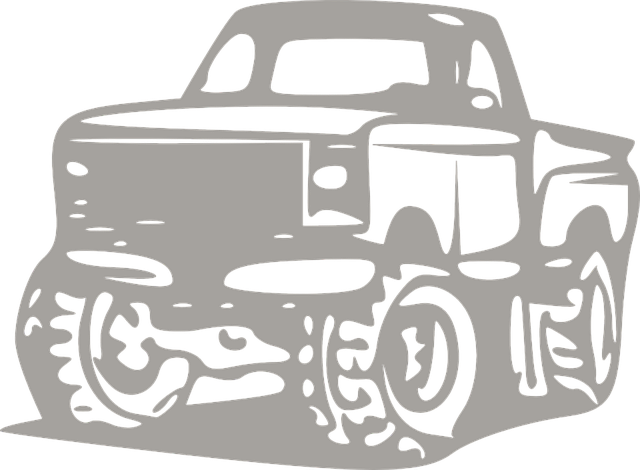TL;DR:
Tow hooks are essential for 4×4 owners towing heavy loads, and McCallen's 4×4 suspension specialists offer expert advice. They emphasize the importance of:
– Choosing the right tow hook based on towing capacity, vehicle specs, and intended use (considering sturdy construction for frequent use).
– Safe installation involving frame cleaning, jack stands, alignment, tight bolting, and regular inspections to prevent wear/damage.
– Avoiding common mistakes like overloading and neglecting maintenance checks.
– Fine-tuning suspension and using advanced engineering tow hitches for improved stability and control.
– Regular maintenance including visual inspections, lubrication, and cleaning to extend the life of tow hooks and ensure safe towing.
“Unleash your vehicle’s towing potential with a comprehensive guide to tow hooks, brought to you by McCallen’s 4×4 suspension specialists. From understanding the basics of these essential components to selecting the perfect hook for your rig, this article covers all things tow-related.
Learn key factors when choosing your tow hook, explore installation best practices, and discover common pitfalls to avoid. We also delve into advanced techniques and maintenance tips from our experts to ensure optimal towing performance and a longer lifespan.”
- Understanding Tow Hooks: A Basic Guide by McCallen's Experts
- Choosing the Right Tow Hook for Your Vehicle: Key Factors
- Installation Tips: Ensuring a Secure Connection
- Common Mistakes to Avoid When Using Tow Hooks
- Advanced Techniques for Optimal Towing Performance
- Maintenance and Safety Checks: Prolonging Your Tow Hook's Lifespan
Understanding Tow Hooks: A Basic Guide by McCallen's Experts

Tow hooks are essential components for anyone who frequently hauls heavy loads or needs to tow a trailer. Understanding their function and proper use is crucial, especially when navigating challenging terrains with your 4×4 vehicle. McCallen’s 4×4 suspension specialists offer valuable insights to demystify these powerful tools.
These experts emphasize that tow hooks, also known as towing eyes, are designed to securely attach a trailer or another vehicle to your 4×4. By utilizing specific points of connection, they distribute the weight evenly, ensuring stability and safety during towing. The team at McCallen suggests following their expert tips for optimal performance: check the rating capacity of your tow hooks, ensure proper installation, and regularly inspect them for any signs of wear or damage.
Choosing the Right Tow Hook for Your Vehicle: Key Factors

When selecting a tow hook for your vehicle, especially if you’re an off-roader or enthusiast, understanding your needs and prioritizing safety is paramount. McCallen’s 4×4 suspension specialists offer valuable tips to ensure you make the right choice. Firstly, consider your towing capacity—how much weight your vehicle can handle safely. Different tow hooks are designed for varying capacities, so matching one with your vehicle’s specifications is crucial.
Additionally, the type of towing you plan to do matters. Whether it’s a heavy trailer or a light utility bed, the hook’s design and material should suit the task. Look for sturdy construction, especially if frequent use is expected, as this guarantees longevity and reliability during challenging conditions.
Installation Tips: Ensuring a Secure Connection

When installing tow hooks, following tips from McAllen’s 4×4 suspension specialists is paramount to ensure a secure connection. First, make sure your vehicle’s frame is clean and free of debris to prevent any interference during the mounting process. Use jack stands for safety while working on elevated vehicles, as this prevents accidental drops.
Next, align the tow hook with the designated mounting points on your vehicle. Ensure proper clearance for both the hook and the trailer when hitched. Tighten the bolts securely according to the manufacturer’s specifications, using a torque wrench if available. Regularly inspect your tow hooks and associated hardware for signs of wear or damage, replacing them as needed to maintain optimal safety during towing operations.
Common Mistakes to Avoid When Using Tow Hooks

When using tow hooks, especially for off-road adventures, many drivers make common mistakes that can compromise safety and vehicle performance. According to McAllen’s 4×4 suspension specialists, avoiding these pitfalls is crucial for a smooth towing experience. One of the most frequent errors is overloading the vehicle. Always ensure you’re within the legal weight limits and your vehicle’s towing capacity. Exceeding these boundaries can lead to loss of control, especially on rough terrains.
Another mistake is neglecting regular maintenance checks. Inspect your tow hooks, cables, and chains before each trip. Wear and tear are common, and outdated or damaged equipment increases the risk of failure during critical moments. McAllen’s experts recommend keeping a close eye on these components to prevent accidents caused by unexpected breakdowns.
Advanced Techniques for Optimal Towing Performance

When it comes to optimal towing performance, advanced techniques are key. McCallen’s 4×4 suspension specialists offer valuable tips that can transform your towing experience. One such technique involves fine-tuning your vehicle’s suspension for improved load stability. This includes adjusting spring rates and shock absorbers to match the weight of the trailer, ensuring a smooth ride even at high speeds.
Additionally, utilizing tow hitches designed with advanced engineering can significantly enhance towing efficiency. These hitches are crafted to minimize trailering angles, allowing for better control and safety. By combining these techniques with regular maintenance checks, you’ll not only enjoy a seamless towing experience but also extend the life of your vehicle and trailer.
Maintenance and Safety Checks: Prolonging Your Tow Hook's Lifespan

Regular maintenance and safety checks are crucial for prolonging the lifespan of your tow hook, as recommended by McAllen’s 4×4 suspension specialists. Start by inspecting the hook for any signs of wear, corrosion, or damage. Even subtle cracks or deformations can compromise its integrity during towing, leading to dangerous situations. They suggest performing visual checks before and after each trip, particularly if you frequently tow heavy loads or navigate challenging terrains.
Additionally, ensure that your tow hook is properly lubricated to prevent rust buildup. The specialists recommend using a water-displacing lubricant to protect against moisture and extreme temperatures. Regular cleaning of the hook and its connecting components can also prevent debris accumulation, which may cause friction and accelerate wear. Following these tips from McAllen’s 4×4 experts will ensure a longer lifespan for your tow hook and enhance safety while towing.
When it comes to towing, understanding and using tow hooks correctly is paramount. As McCallen’s 4×4 suspension specialists have emphasized throughout this guide, choosing the right hook, ensuring proper installation, and maintaining it well can significantly enhance your towing experience. Remember, safety and performance go hand in hand. By heeding these tips from our experts, you’ll be well-equipped to handle any towing challenge with confidence.
